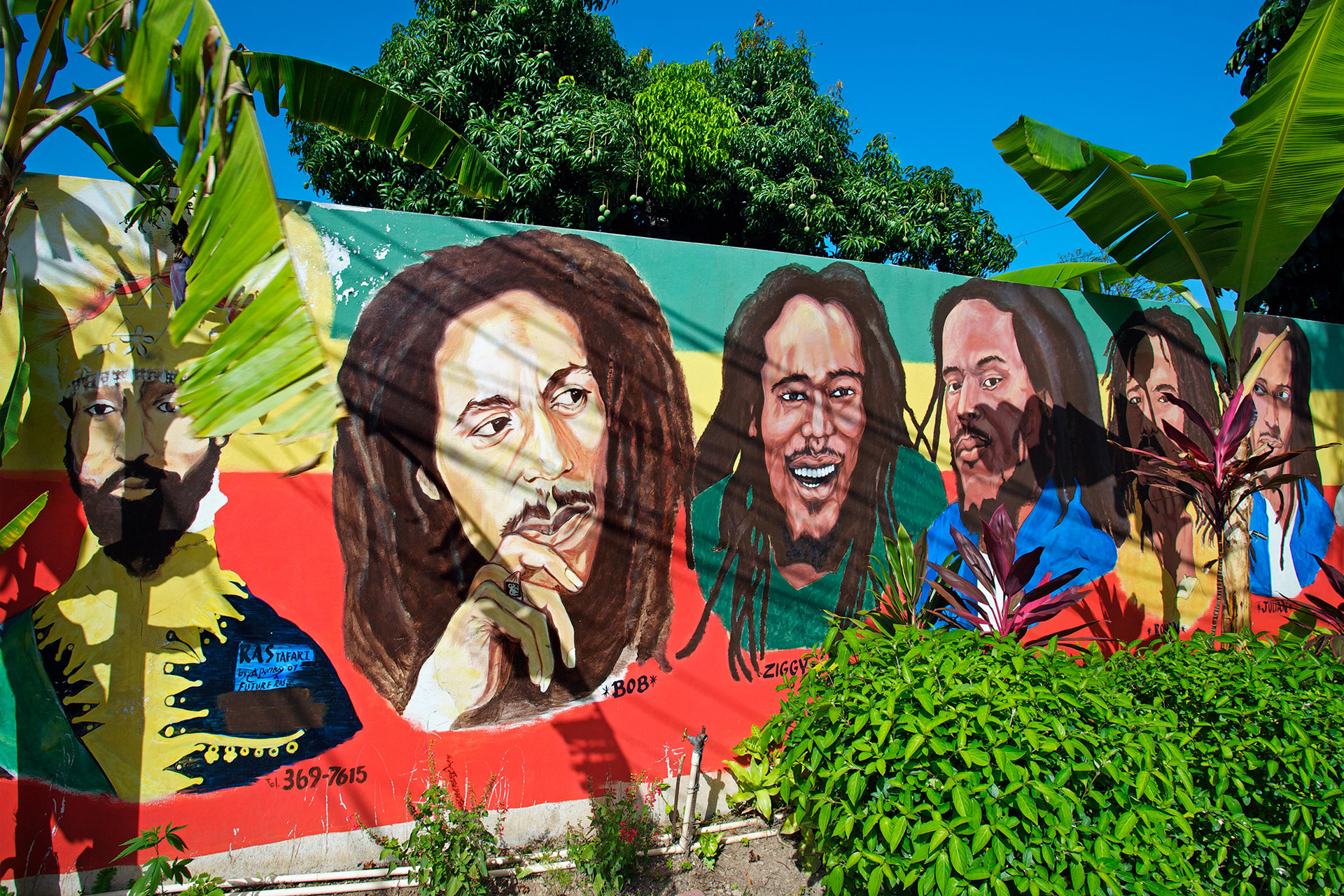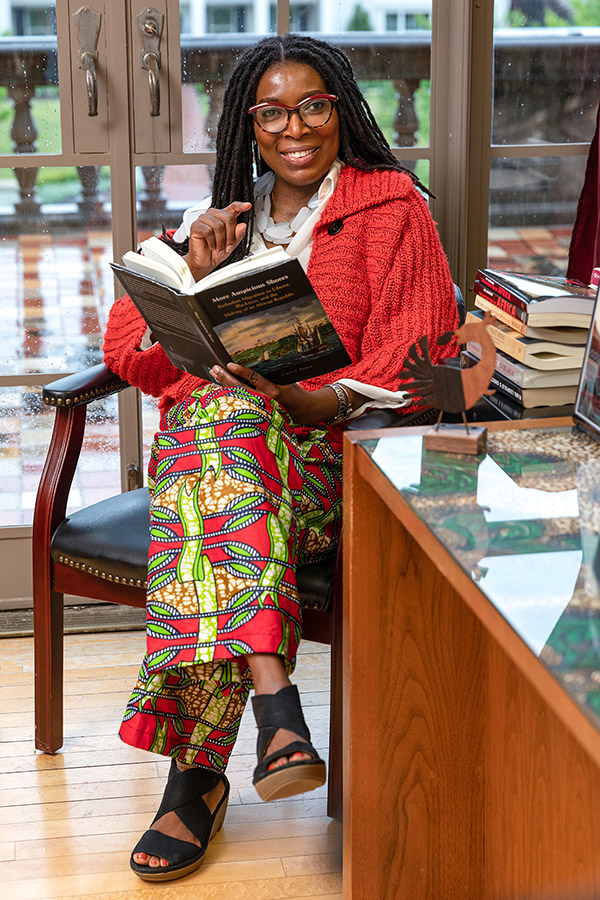
Honors Passport: Jamaica
January 3 - 14, 2023 Canceled due to COVID-19 travel restrictions. More information to come at a later date.
Small in size but mighty in impact, Jamaica has exercised a disproportionate influence
on musical and cultural practices around the globe. Did you know Jamaica is the only
country to have given the world eight distinct genres of music in the latter half
of the 20th century? Reggae is Jamaica’s most internationally recognized musical genre,
but dub has proven to be its most influential export. Without dub, hip-hop and rap
music would never have become the world’s leading form of popular culture; dub also
launched dubstep, reggaeton, ambient, jungle, house, garage, grime, Afro-beat, and
numerous other types of dance music. Jamaica has also had a profound impact on everything
from dance and food to slang, tourism, and culture. One million tourists flocked to
Jamaica in 2020 and it was named “Destination of the Year” by the Pacific Area Travel
Writers Association; TripAdvisor users also selected Jamaica as the number one destination
in the Caribbean. These designations are a great boon for the hospitality market in
Jamaica, but how do tourists from all over the world impact the people and culture
of this small nation?
Prepare to spend every day on a learning-filled series of adventures as we circumnavigate the island, starting and ending in Jamaica’s tourist capital of Montego Bay. We will visit the Rose Hall Great House, haunted by the ghost of the White Witch of Rose Hall who forced her slaves to teach her the dark arts before they were eventually killed, and Sam Sharpe Square, which honors the man who led the slave revolt that ended slavery throughout the British Empire. We will tour the Bellefield Great House and its rich estate, one of the oldest sugar plantations in Jamaica, and venture to Montego Bay’s "Hip Strip” to observe how Jamaican culture is marketed and consumed by tourists.
We will follow reggae legend Bob Marley’s trajectory, from his humble origins in Trench Town to the making of international hits at Tuff Gong Recording Studios, followed by a tour of his home, now a museum. We will also experience Jamaica’s abundant natural wonders, from Dunn’s River Falls, one of the most beautiful waterfalls in the world, to Green Grotto Caves, a largely unexplored labyrinth of mystical underground caverns.
Join us on this Honors Passport experience as we explore Jamaica's cultures through the lens of music, history, art, politics, architecture, and tourism, thinking critically about its creation, packaging and sale, as well as its consumption by tourists to the island and others worldwide.
What's in it for you:
- Develop an understanding of Jamaican history and culture, and their marketing and consumption.
- Refine your research and presentation skills as you prepare your site report.
- Experience Jamaican cultural history and culture through to modern times in an authentic
setting and from a Jamaican local.
What's expected of you:
- Active, insightful engagement in all lectures, discussions and site/museum visits
- Maintenance of a travel journal, in which you will reflect and record your responses and reactions to various experiences throughout the trip
- 10- to 15-minute site report on topics such as art, food and culture, to be presented
during the trip
Course Credit:
Honors Passport: Jamaica counts as three hours of honors credit in the following course:
WLLC 423V/ WLLC 423VH Culture and Civilization: Field Studies in Jamaica
About your professors:
 Caree Banton is an associate professor of African diaspora history and the director of the African
and African American Studies Program at the University of Arkansas. Banton earned
a B.P.A. in public administration and B.A. in history from Grambling State University
in 2005. She received an M.A. in development studies from the University of Ghana
in July 2012 and completed her Ph.D. at Vanderbilt University in June 2013. Her research
focuses on movements towards freedom, particularly abolition, emancipation and colonization.
Much of her work also explores ideas of citizenship, nationhood and race. Her research
has been supported by a number of fellowships and grants, including the Rotary Ambassadorial
Scholarship, the Andrew M. Mellon Foundation Fellowship, the Lapidus Center Fellowship
at the Schomburg Center, the Nancy Weiss Malkiel Fellowship, and a National Endowment
for the Humanities grant. Banton teaches classes in Caribbean history, African diaspora
history, and the history of race. She is a member of the University of Arkansas Teaching
Academy and has been named a Master Teacher in Fulbright College. Her book, More Auspicious Shores: Barbadian Migration to Liberia, Blackness, and the Making
of the African Republic, explores continuities and mutabilities in Black experiences of freedom, citizenship,
nationhood and race across the Atlantic world was published by Cambridge University
Press in May 2019.
Caree Banton is an associate professor of African diaspora history and the director of the African
and African American Studies Program at the University of Arkansas. Banton earned
a B.P.A. in public administration and B.A. in history from Grambling State University
in 2005. She received an M.A. in development studies from the University of Ghana
in July 2012 and completed her Ph.D. at Vanderbilt University in June 2013. Her research
focuses on movements towards freedom, particularly abolition, emancipation and colonization.
Much of her work also explores ideas of citizenship, nationhood and race. Her research
has been supported by a number of fellowships and grants, including the Rotary Ambassadorial
Scholarship, the Andrew M. Mellon Foundation Fellowship, the Lapidus Center Fellowship
at the Schomburg Center, the Nancy Weiss Malkiel Fellowship, and a National Endowment
for the Humanities grant. Banton teaches classes in Caribbean history, African diaspora
history, and the history of race. She is a member of the University of Arkansas Teaching
Academy and has been named a Master Teacher in Fulbright College. Her book, More Auspicious Shores: Barbadian Migration to Liberia, Blackness, and the Making
of the African Republic, explores continuities and mutabilities in Black experiences of freedom, citizenship,
nationhood and race across the Atlantic world was published by Cambridge University
Press in May 2019.
 Jeffrey Allen Murdock is internationally known as a conductor, clinician, and music educator. He currently
serves as coordinator of Choral and Vocal Studies, associate professor of music, and
director of the Black Music Institute at the University of Arkansas. He is a 2016
Connor Endowed Faculty Fellow in the Fulbright College of Arts and Sciences, a 2018
recipient of the Golden Tusk Award, the 2019 Most Outstanding Faculty Member among
all university faculty, and the 2021 Grammy Music Educator of the Year. Murdock appears
regularly in concert, recital and stage performances, having previously conducted
the Arkansas Philharmonic Orchestra, the Memphis Symphony Orchestra, the (Mississippi)
Gulf Coast Symphony and has also performed as a soloist with the Fort Smith Symphony,
the Memphis Symphony, the Mississippi Symphony Orchestra, and the Southern Mississippi
Opera. Murdock’s love of scholarship and performance has led him to study and perform
around the world. As a music educator, he loves to invest his knowledge and experience
in the next generation of young musicians through clinic opportunities with secondary
choral programs, conducting honor choruses, and mentoring choral music educators.
Murdock is highly sought after as a clinician in the field of choral music and education,
having conducted All-State and All-Region choirs, and headlined conferences in 26
states and 7 countries. In 2013, he made his Carnegie Hall debut conducting the Millington
Chorale in a well-received concert of diverse repertoire. The evening concert featuring
the ensemble was praised for its preparation and the ensemble’s maturity of sound.
Jeffrey Allen Murdock is internationally known as a conductor, clinician, and music educator. He currently
serves as coordinator of Choral and Vocal Studies, associate professor of music, and
director of the Black Music Institute at the University of Arkansas. He is a 2016
Connor Endowed Faculty Fellow in the Fulbright College of Arts and Sciences, a 2018
recipient of the Golden Tusk Award, the 2019 Most Outstanding Faculty Member among
all university faculty, and the 2021 Grammy Music Educator of the Year. Murdock appears
regularly in concert, recital and stage performances, having previously conducted
the Arkansas Philharmonic Orchestra, the Memphis Symphony Orchestra, the (Mississippi)
Gulf Coast Symphony and has also performed as a soloist with the Fort Smith Symphony,
the Memphis Symphony, the Mississippi Symphony Orchestra, and the Southern Mississippi
Opera. Murdock’s love of scholarship and performance has led him to study and perform
around the world. As a music educator, he loves to invest his knowledge and experience
in the next generation of young musicians through clinic opportunities with secondary
choral programs, conducting honor choruses, and mentoring choral music educators.
Murdock is highly sought after as a clinician in the field of choral music and education,
having conducted All-State and All-Region choirs, and headlined conferences in 26
states and 7 countries. In 2013, he made his Carnegie Hall debut conducting the Millington
Chorale in a well-received concert of diverse repertoire. The evening concert featuring
the ensemble was praised for its preparation and the ensemble’s maturity of sound.